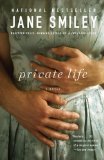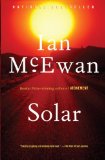Summary | Excerpt | Reading Guide | Reviews | Beyond the book | Read-Alikes | Genres & Themes | Author Bio

The Philpott Institute is dedicated to cancer research and desperately in need of a grant. So when the experiments begin to work, the entire lab becomes giddy with newfound expectations. But Cliff’s girlfriend suspects the unthinkable: that his findings are fraudulent. As the doubts become public the controversy engulfs the lab and everyone in it.
Hailed as “a writer of uncommon clarity” by the New Yorker, National Book Award finalist Allegra Goodman has dazzled readers with her acclaimed works of fiction, including such beloved bestsellers as The Family Markowitz and Kaaterskill Falls. Now she returns with a bracing new novel, at once an intricate mystery and a rich human drama set in the high-stakes atmosphere of a prestigious research institute in Cambridge, Massachusetts.
Sandy Glass, a charismatic publicity-seeking oncologist, and Marion Mendelssohn, a pure, exacting scientist, are codirectors of a lab at the Philpott Institute dedicated to cancer research and desperately in need of a grant. Both mentors and supervisors of their young postdoctoral protégés, Glass and Mendelssohn demand dedication and obedience in a competitive environment where funding is scarce and results elusive. So when the experiments of Cliff Bannaker, a young postdoc in a rut, begin to work, the entire lab becomes giddy with newfound expectations. But Cliff’s rigorous colleague–and girlfriend–Robin Decker suspects the unthinkable: that his findings are fraudulent. As Robin makes her private doubts public and Cliff maintains his innocence, a life-changing controversy engulfs the lab and everyone in it.
With extraordinary insight, Allegra Goodman brilliantly explores the intricate mixture of workplace intrigue, scientific ardor, and the moral consequences of a rush to judgment. She has written an unforgettable novel.
In an interview about Intuition, the interviewer commented that Goodman's first two novels were about the search for spirituality and asked if Intuition was about the search for a different kind of truth - scientific truth? To which Goodman replied:
"The themes in this book resonate with themes that I've dealt with in previous work. I see similarities between the search for spiritual truth and the search for truth about the world that scientists embark on. The book is very much about faith and doubt. It's about religious people, except that their religion is science."..continued
Full Review
(629 words)
This review is available to non-members for a limited time. For full access,
become a member today.
(Reviewed by BookBrowse Review Team).
Harvard-educated Allegra Goodman started her writing career with Total Immersion, a collection of short stories published in 1989; a second volume of short stories, The Family Markowitz, followed in 1996. Her first novel, Kaaterskill Falls, was published in 1998 (and was one of the first books to be recommended at BookBrowse). Paradise Park was published in 2001 and Intuition in 2006. She lives in Cambridge, Massachussets, the setting for Intuition.

If you liked Intuition, try these:

by Jane Smiley
Published 2011
A riveting new novel from the Pulitzer Prize–winner that traverses the intimate landscape of one woman’s life, from the 1880s to World War II.

by Ian McEwan
Published 2011
Michael Beard is a Nobel prize–winning physicist whose best work is behind him, and whose fifth marriage is crumbling. However, an invitation to travel to New Mexico offers him a chance for him to extricate himself from his marital problems, reinvigorate his career, and save the world from environmental disaster. Can a man who has made a mess ...
When I get a little money I buy books...
Click Here to find out who said this, as well as discovering other famous literary quotes!